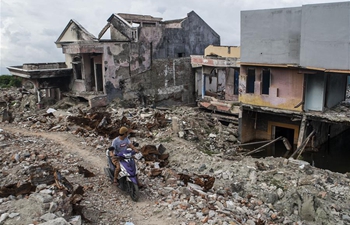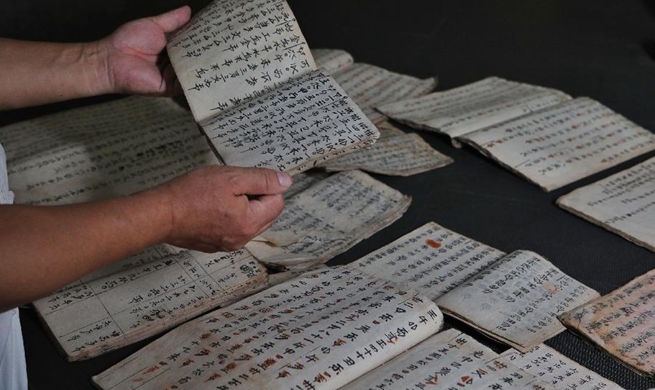by Nguon Sovan
PHNOM PENH, July 4 (Xinhua) -- Tobacco-related illnesses claimed about 15,000 lives in Cambodia a year, costing the country's economy 657 million U.S. dollars, or three percent of the nation's Gross Domestic Product (GDP), said a United Nations-led new study released on Thursday.
"These costs are due to health care expenditures and 'hidden' productivity losses from premature mortality, disabilities and smoking breaks," said a joint statement publicized during the launching ceremony of a study report on health and economic costs of tobacco use in Cambodia.
Other than the health and economic costs of tobacco use, the study also estimated the potential health and economic gains from scaled up implementation of evidence-based tobacco control measures, the statement said.
Scaling up tobacco control measures would save 57,000 Cambodian lives and avert 1.9 billion dollars in health costs and economic losses by 2033, it said, adding that this would translate into 3,815 lives saved annually.
"The investment case study clearly shows that tobacco is harming our people and our economy," Cambodian Health Ministry Secretary of State Oeurn Borarorth said during the launching ceremony.
"The government is committed to implementing the necessary measures to better the health of all, save lives and improve the economic well-being of the country and the people," he said.
As a party to the world's tobacco control international treaty -- the World Health Organization Framework Convention on Tobacco Control (WHO FCTC), Cambodia has taken important steps to reduce tobacco use, the statement said.
These steps include the enactment of a comprehensive tobacco control law, establishment of a national multisectoral coordinating mechanism and implementation of large pictorial health warnings on cigarette packages, it said.
"While we have seen Cambodia make great strides in tobacco control, more can still be done to protect the people from the harms of tobacco," said Rodrigo Santos Feijo, technical officer for the WHO FCTC Secretariat.
"We encourage all government ministries in Cambodia to support the full implementation of the WHO FCTC to advance health and sustainable development," he said.
The investment case study revealed that, although strengthening tobacco control would benefit all, Cambodia's lowest income group would benefit the most, the statement said, adding that under the first year of the described tax increase, around 46 percent of the deaths averted from the recommended tax increase on cigarettes would be among Cambodia's lowest income quintile.
Further, this would avert 1,499 cases of impoverishment due to out-of-pocket spending on tobacco-attributable diseases and 16,823 catastrophic health expenditures, it said.
"This is because poorer populations would quit or reduce smoking at higher rates than wealthier populations due to higher taxes," the statement said.
Without these expenses, households can direct resources to nutrition, children's education and other productive investments, it said.
"One thing I took away from the investment case is how effective tobacco control is at protecting the lives and livelihoods of lower-income Cambodians," said Richard Colin Marshall, senior economist for the United Nations Development Program (UNDP) Cambodia.
"This underscores how critical the WHO FCTC is for achieving a range of Sustainable Development Goals, including SDG 10 on reducing inequalities," he said.
Nargiza Khodjaeva, acting WHO representative in Cambodia, said the investment case marked an important milestone for Cambodia.
"The findings will contribute to the global and regional agenda on prevention of noncommunicable disease risk factors and would be key to informing policies for public health, economic growth and sustainable development," she said.
According to the Ministry of Health, there are approximately 1.68 million tobacco users in Cambodia.













